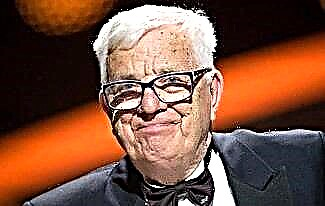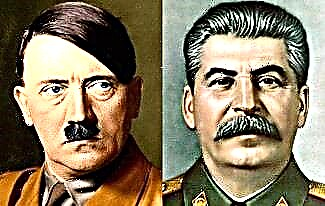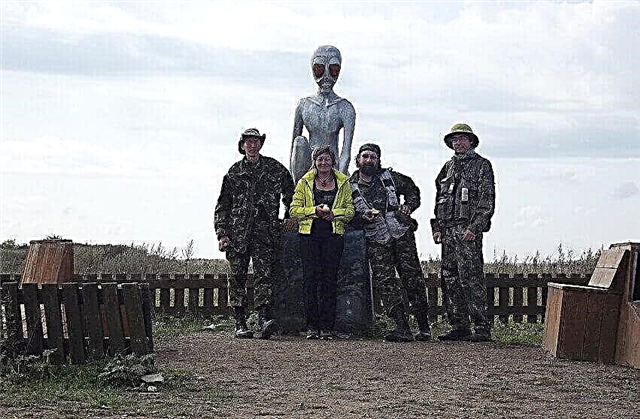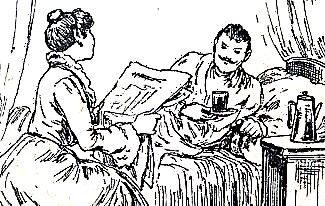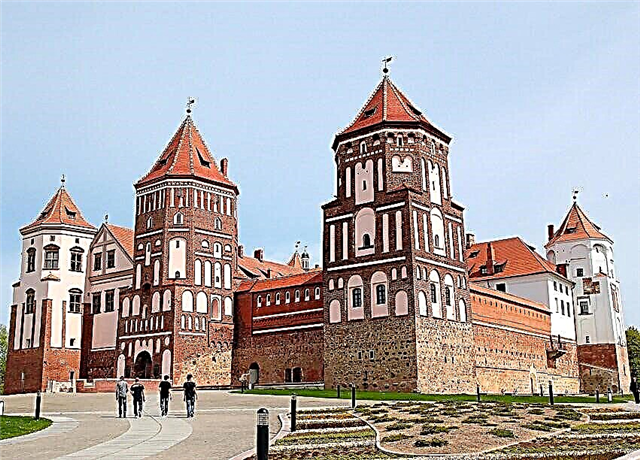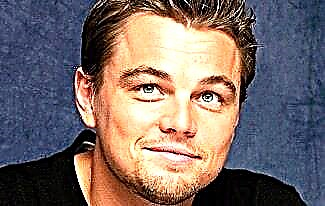Andrey Arsenievich Tarkovsky (1932-1986) - Soviet theater and film director, screenwriter. His films "Andrei Rublev", "The Mirror" and "Stalker" are periodically included in the ratings of the best film works in history.
There are many interesting facts in Tarkovsky's biography, which we will tell about in this article.
So, before you is a short biography of Andrei Tarkovsky.

Biography of Tarkovsky
Andrei Tarkovsky was born on April 4, 1932 in the small village of Zavrazhie (Kostroma region). He grew up and was raised in an educated family.
The director's father, Arseny Alexandrovich, was a poet and translator. Mother, Maria Ivanovna, was a graduate of the Literary Institute. In addition to Andrei, his parents had a daughter, Marina.
Childhood and youth
A few years after the birth of Andrei, the Tarkovsky family settled in Moscow. When the boy was barely 3 years old, his father left the family for another woman.

As a result, the mother had to take care of the children alone. The family often lacked the essentials. At the beginning of the Great Patriotic War (1941-1945), Tarkovsky, together with his mother and sister, moved to Yuryevets, where their relatives lived.
Life in Yuryevets left a significant mark on the biography of Andrei Tarkovsky. Later, these impressions will be reflected in the film "Mirror".
A couple of years later, the family returned back to the capital, where he continued to go to school. An interesting fact is that his classmate was the famous poet Andrei Voznesensky. At the same time, Tarkovsky attended a music school, piano class.
In high school, the young man was engaged in drawing at a local art school. Having received the certificate, Andrey successfully passed the exams at the Moscow Institute of Oriental Studies at the Arabic faculty.
Already in the first year of study, Tarkovsky realized that he was in a hurry with the choice of a profession. During that period of his biography, he got in touch with a bad company, which is why he began to lead an immoral lifestyle. He later admits that his mother saved him, who helped him get a job in the geological party.
As a member of the expedition, Andrei Tarkovsky spent about a year in the deep taiga, far from civilization. After returning home, he entered the directing department at VGIK.
Films
When in 1954 Tarkovsky became a student at VGIK, a year had passed since Stalin's death. Thanks to this, the totalitarian regime in the country has weakened somewhat. This helped the student to exchange experience with foreign colleagues and become more familiar with Western cinema.
Films began to be actively shot in the USSR. The creative biography of Andrei Tarkovsky began at the age of 24. His first tape was called "Assassins", based on the work of Ernest Hemingway.

After that, the young director made two more short films. Even then, the teachers noted Andrey's talent and predicted a great future for him.
Soon the guy met Andrei Konchalovsky, with whom he studied at the same university. The guys quickly became friends and began joint cooperation. Together they wrote many scripts and in the future they regularly shared their experiences with each other.
In 1960, Tarkovsky graduated with honors from the institute, after which he set to work. By that time, he had already formed his own vision of cinema. His films portrayed the suffering and hopes of people who took on the burden of moral responsibility for all of humanity.
Andrey Arsenievich paid great attention to lighting and sound, the task of which was to help the viewer to fully experience what he sees on the screen.
In 1962 the premiere of his full-length military drama Ivan's Childhood took place. Despite the acute shortage of time and finances, Tarkovsky managed to brilliantly cope with the work and earn recognition from critics and ordinary viewers. The film received about a dozen international awards, including the Golden Lion.
After 4 years, the man presented his famous film "Andrei Rublev", which immediately gained worldwide popularity. For the first time in Soviet cinema, an epic view of the spiritual, religious side of medieval Russia was presented. It is worth noting that Andrei Konchalovsky was the co-author of the script.

In 1972, Tarkovsky presented his new drama, Solaris, in two parts. This work also delighted the audience of many countries and as a result was awarded the Grand Prix of the Cannes Film Festival. Moreover, according to some polls, Solaris is among the greatest science fiction films of all time.
A couple of years later, Andrei Tarkovsky shot the film "Mirror", which featured many episodes from his biography. The main role went to Margarita Tereshkova.
In 1979, the premiere of "Stalker", based on the work of the Strugatsky brothers "Roadside Picnic", took place. It is worth noting that the first version of this parable-drama died for technical reasons. As a result, the director had to re-shoot the material three times.
Representatives of the Soviet State Film Agency assigned the film only the third distribution category, allowing only 196 copies to be made. This meant that audience coverage was minimal.

However, despite this, "Stalker" was watched by about 4 million people. The film won the Ecumenical Jury Prize at the Cannes Film Festival. It is worth noting that this work has become one of the most significant in the director's creative biography.
After that Andrei Tarkovsky shot 3 more pictures: "Travel time", "Nostalgia" and "Sacrifice". All these films were filmed abroad, when a man and his family were in exile in Italy since 1980.
Moving abroad was forced, since both officials and colleagues in the shop interfered with Tarkovsky's work.
In the summer of 1984, Andrei Arsenievich, at a public meeting in Milan, announced that he had decided to finally settle in the West. When the leadership of the USSR found out about this, it prohibited the broadcasting of Tarkovsky's films in the country, as well as mentioning him in print.
An interesting fact is that the authorities of Florence presented the Russian master with an apartment and awarded him the title of honorary citizen of the city.
Personal life
With his first wife, actress Irma Raush, Tarkovsky met during his student years. This marriage lasted from 1957 to 1970. In this union, the couple had a boy, Arseny.
Andrei's next wife was Larisa Kizilova, who was his assistant during the filming of Andrei Rublev. From a previous marriage, Larisa had a daughter, Olga, whom the director agreed to adopt. Later they had a common son, Andrei.

In his youth, Tarkovsky courted Valentina Malyavina, who refused to stay with him. It is curious that both Andrei and Valentina were married at that time.
The man also had a close relationship with costume designer Inger Person, whom he met shortly before his death. The result of this relationship was the birth of an illegitimate child, Alexander, whom Tarkovsky never saw.
Death
A year before his death, Andrei was diagnosed with lung cancer. The doctors could no longer help him, since the disease was at its last stage. When the Soviet Union learned about his grave health condition, officials again allowed his compatriot's films to be shown.
Andrey Arsenievich Tarkovsky died on December 29, 1986 at the age of 54. He was buried in the French cemetery of Sainte-Genevieve-des-Bois, where the most famous Russian people rest.
Tarkovsky Photos










